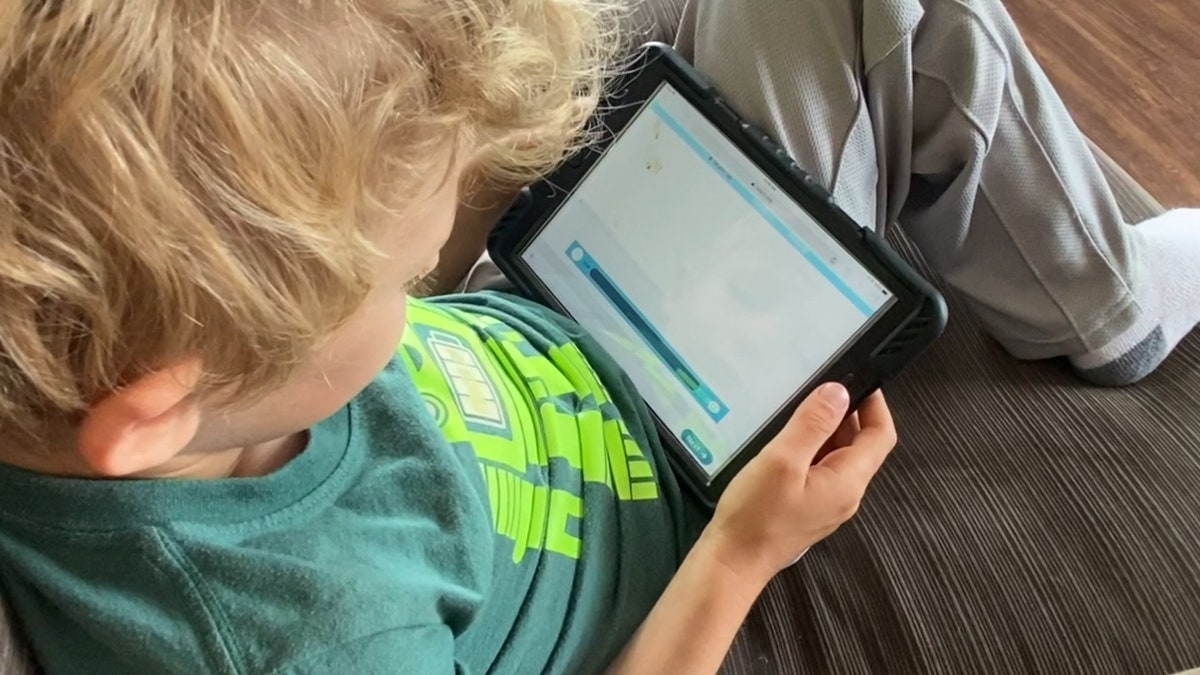Pandemic telecommuting proving difficult – or impossible – for millions in 'digital divide'
In a time the world has never depended on the internet more, working and going to class online is proving impossible for millions of Americans.
Get all the latest news on coronavirus and more delivered daily to your inbox. Sign up here.
Working from home is the new normal for millions of Americans – but for millions more, it hasn't been so easy.
When Cliff Johnson, a college professor living in rural Mississippi, pries open his laptop every morning, he holds his breath and hopes for the best.
"The Internet already had been janky before we started this social distancing process," said Johnson, who relies on a fixed wireless connection. "Now, I don't have any Internet."
He's one of the millions of Americans living in the low-income or rural areas that lack access to high-speed Internet – in time the world has never depended on it more – for everything from work and school – to banking and virtual doctor's visits.
TOP CORONAVIRUS SCAMS TO BE AWARE OF
With at least 55 million children out of the classroom right now, Federal Communications Commissioner Jessica Rosenworcel said she fears low-income and rural children are being left behind.
"It's no longer a luxury. It's actually a necessary part of their education," Rosenworcel said, calling on her own agency to do more. "We've got to start addressing this and I think the FCC needs to step up and do more."
As schools across the country transition to online learning, Rosenworcel said nearly a third of New York City public school children do not have access to dedicated broadband connections. Even as the city aims to distribute about 300,000 iPads and laptops for the students to use for class – many of the kids are discovering they are useless without an Internet connection.

At least 55.1 million children are out of the classroom due to the coronavirus pandemic, Education Week estimates. (Fox News)
While the FCC has suggested the number of Americans stuck offline is around 21 million, Rosenworcel said the actual number is way higher. Gigi Sohn, a former senior FCC advisor and distinguished fellow at the Georgetown Institute, estimates there are 141 million Americans in both rural and inner-city neighborhoods without highspeed internet. In the past few weeks, dozens of internet service providers have pledged to expand basic service and drop data caps, late fees, and service shutoffs in the midst of the COVID-19 outbreak to help consumers cope.
HACKERS COULD EXPLOIT THE SHIFT TO WORKING FROM HOME, EXPERTS SAY
But Sohn said consumers are too reliant on the companies' goodwill right now. When the FCC ended net neutrality in 2017, she said the agency stripped itself of its power to regulate broadband service providers.
"The FCC is powerless. All they have is the chairman picking up the phone and begging [internet service providers] to do something good," Sohn said. "But there's no way that they could actually enforce it."
"We shouldn't just rely on their good deeds in this time of crisis."
Rosenworcel disagreed, saying they could – and should – do more.
"We have the authority, we have the knowledge, we have the ability, we even have funding," Rosenworcel said. "It's really important that we act fast because this crisis is going to hit so many students and so many homes who are stuck on the wrong side of the digital divide."
She suggested that the FCC should send Wi-Fi hotspots to schools to lend to students and called for the expansion of E-rate, a program that provides broadband to schools and libraries. Low-income consumers can already apply for Lifeline, another FCC program that provides low-income consumers with discounted phone and Internet services.
"We shouldn't just rely on their good deeds in this time of crisis," Rosenworcel said. "We should appreciate them, but we need a national agenda to address the digital divide."
Sohn pointed to Prince George's County, Md., just outside of D.C., which sent paper packets of schoolwork home to kids. Meanwhile, the much more affluent neighboring Montgomery County. she said, has moved to completely online instruction.
"You're going to have a situation where the kids in Montgomery County proceed apace and the kids and P.G. County fall further behind," Sohn said.
Johnson's law class at Ole Miss just got back from spring break and is meeting online -- with those who can connect. A couple of students were unable to join and had to listen in over the phone, he said.
One of Johnson's colleagues said he saw a student with a laptop sitting on the steps outside the building appearing to tap into the school's Wi-Fi signal.
CLICK HERE TO GET THE FOX NEWS APP
Sohn now fears that even consumers with broadband could find issues logging on in the coming weeks with so many online at once.
"There's going to be a lot of people, teleworking, a lot of kids learning from home. So that is going to mean there needs to be more bandwidth," Sohn said, "If I'm working from home and my wife is working from home or my kid is online at school, what I've got right now is not going to do the trick."
Charles Watson contributed to this report.









































